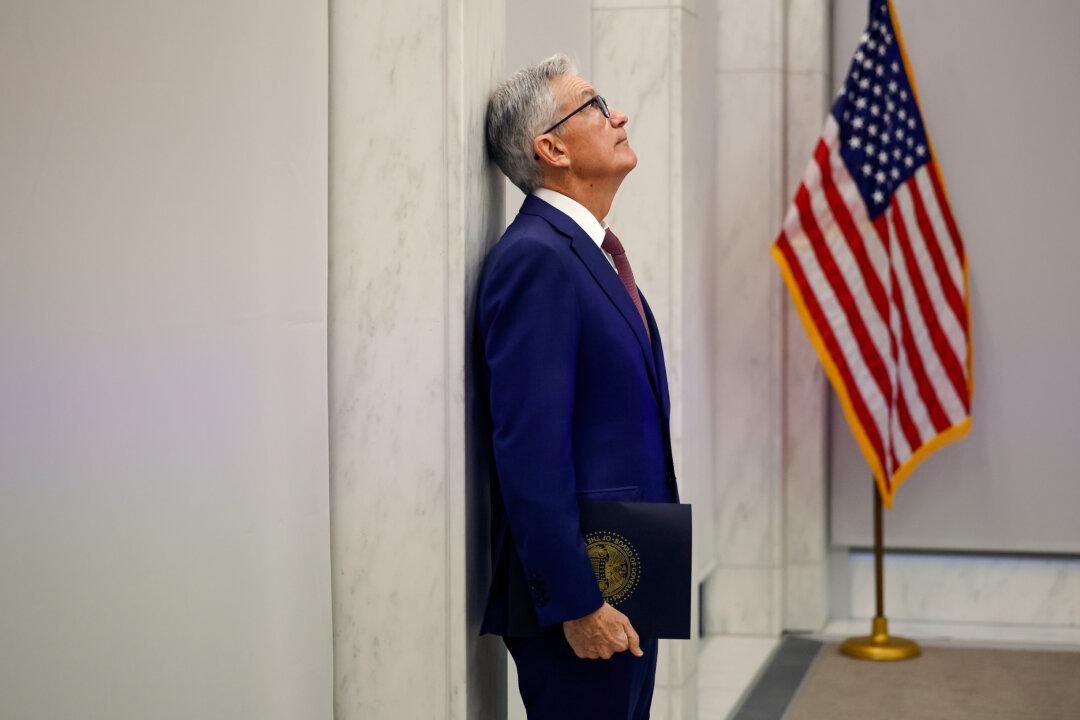Most economists would be best advised to stay clear of Las Vegas after their wayward bets on last year’s recession. According to a survey from the Financial Times, 85 percent of economists polled predicted a recession in 2023. Back at it in 2024, 76 percent are now leaning toward a recession, according to a December survey from the National Association of Business Economics, with 40 percent saying it will start in Q1 and another 24 percent betting on Q2.
Many point to job layoffs, a potential end to buoyant stock market runs, a lack of regional bank liquidity, and commercial office space vacancies playing a role in these predictions. But one man’s influence on the economy still stands above all other factors—Jerome Powell.
Mr. Powell, the U.S. Federal Reserve chair, has given occasional hope, optimism, and fear and dread based on his interest rate decisions. There are legions of economists waiting with bated breath on whether the Fed, which raised interest rates 11 times to slow inflation, will endeavor to drop rates in 2024 after holding them steady at 5.25 percent to 5.50 percent since July.
“It’s like watching the movie ‘Groundhog Day,’ that we keep anticipating rate cuts to come in six to nine months and yet they keep getting pushed off,” Nick Raich, the chief executive of The Earnings Scout, told The Epoch Times. “The main reason we didn’t have a recession in 2023 was that despite the Fed’s rate hikes, this country experienced massive fiscal spending and a boon in AI, which helped buoy the economy along with the hope that rate cuts were coming.”
In a report from Wells Fargo Bank, robust consumer spending was also credited for contributing to the United States avoiding a 2023 recession.
Last month, the Fed debated the potential of a change in U.S. monetary policy and how much longer the economy could weather current high interest rates. While there was an initial discussion regarding the belief that the central bank was done raising rates, there was no direction for any future rate cuts.
In its forecast for 2024, Bankrate reported that even though employment was holding steady below 4 percent, the American consumer keeps spending, spurring continued economic optimism. The survey, however, showed that half the economists polled predicted a recession in 2024.
“The ongoing resilience and a robust us economy may be pleasant surprises today, but we can also look at the past and realize we have no control over the future. All we can do is assess the present and the immediate past,” said Bankrate senior economic analyst and Washington Bureau chief Mark Hamrick. He agreed with others who have praised the rise in AI for helping the economy remain stable but told The Epoch Times it’s still presumptuous to believe that burst will continue long term. “There may be a lot of dumb money going into AI right now, but it’s still early,” he said regarding AI investment that may not be substantially rewarded with a return on investment.
Bankrate believes the Fed is preparing to cut rates with a “soft landing” ahead, writing that only two of the 19 rate-setting Federal Open Market Committee (FOMC) officials have estimated that interest rates will stay in their current target range by the end of the year. Others at the U.S. Central Bank expect interest rates to be cut at least once, with one official predicting a total of six rate cuts.
A report issued this week by UBS Wealth Management predicted there would be a 60 percent chance of a 2024 “soft landing” with “markets now pricing steeper rate cuts than our forecast; we think the Fed is trying to balance its desire to help the economy avoid recession with labor market and core inflation data that still suggest a need for somewhat restrictive monetary policy.”While the United States avoided a full-scale recession in 2023, there are still a lot of questions about the economy heading into 2024. Mr. Raich said that while economists’ predictions in 2023 regarding a recession seemed wrong at the time, they may not necessarily have been in error, just premature.





